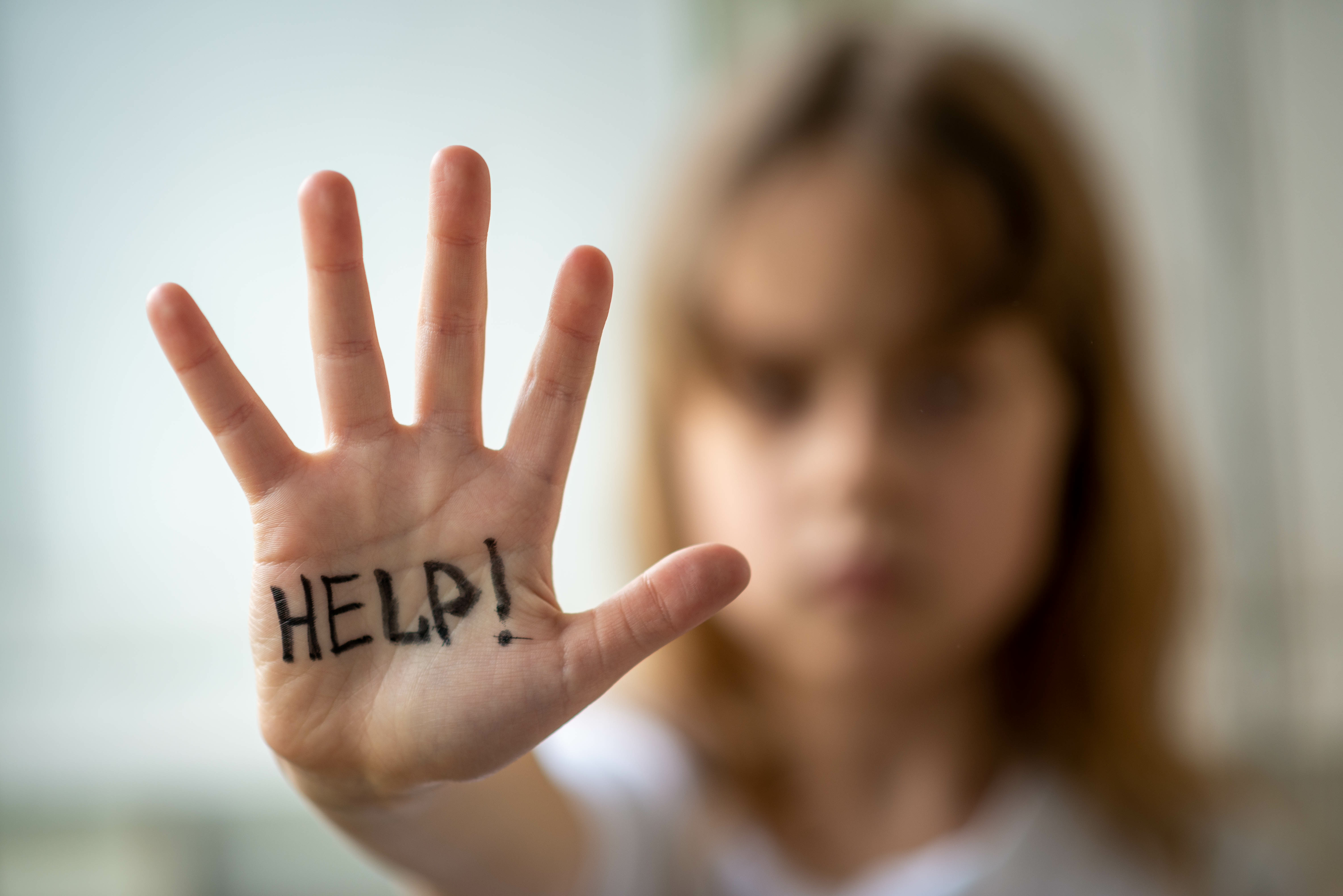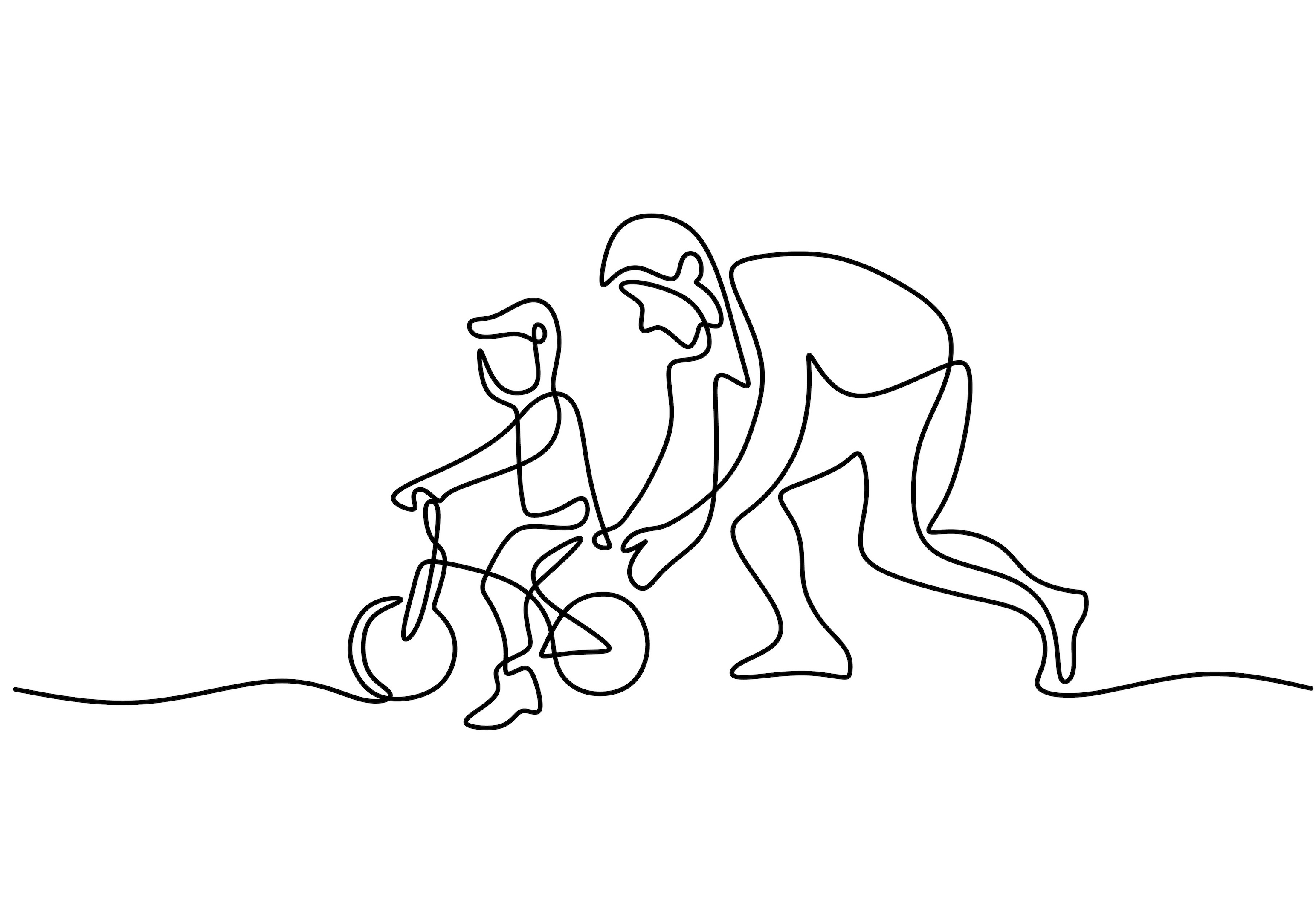Child Low Self-Esteem
Does child low self-esteem worry you? Do you wonder if your child suffers from poor self-esteem? Children who lack a positive view of themselves or who suffer from low self-esteem may exhibit problems in one or several developmental areas, including, social, emotional and behavioral difficulties, as well as learning problems.

Find Out More About Child Low Self-Esteem
What is Self-Esteem?
Self-esteem applies to our overall evaluation of our worth as a person. It answers the question "How good am I?" Children base their self-esteem on the judgment of other people, along with the information they gather about themselves, as they observe their own behavior and compare it to their peers (Harter, 1999).
Self-esteem is multi-dimensional. Children's view of their self-worth reflects their functioning in several categories. These categories include: the academic or cognitive domain, the social, behavioral and athletic domains and the child's physical appearance. In other words, "How smart am I?", "Do I look o'kay?", "Do the other kids like me?", "Am I good or is my behavior okay?", or "How good am I at hockey or football or swimming or am I just a loser?"
Children's view of their self worth or their levels of self- esteem can vary across categories. Children may have high self-esteem in one area and exhibit child low self-esteem in another. Consider Janie. She had many friends, great social skills and was well liked by her peers. However, she struggled academically and experienced academic difficulties in most subject areas. She lacked confidence in her academic ability and felt so uncomfortable and insecure about her academic skills that she often refused to attend school.
Due to different social and academic skills, Janie's social self-esteem was high and her self-esteem or view of her worth as a student was low.
Children integrate their view of themselves in several domains to form an overall view of their self-worth or just how "good they are." Their overall self-esteem reflects their integrated view of their self- worth across several domains. Children who feel competent and worthy in several domains will have higher overall levels of self-esteem than children who feel unworthy or inadequate across a number of domains.
Help for Children With Low Self-Esteem

Children who suffer from child low self-esteem are at increased risk of developing social, emotional, learning and behavioral concerns. High self-esteem correlates with happiness, resilience and optimism, whereas low self-esteem is often associated with depression, anxiety and anger or hostility.
So how do we help enhance child self-esteem. Many believe that we only need to praise children to raise their self-esteem and help them to "feel good" about themselves. Unfortunately, this belief is common and has resulted in programs to boost child self-esteem through constant and indiscriminate praise. In some instances children are taught mantras, such as "I am okay" or "I am special", and encouraged to repeat these regularly. (Fletcher, 2000, p.A3).
Those who criticize this approach emphasize that indiscriminate praise, or the repetition of mantras about how good one is, fails to foster true self-esteem. Positive self-esteem, they stress, is built on a foundation of accomplishment and the mastery of new skills.
In addition, unwarranted praise of children may do more harm than good. A positive self-perception is important, but children who are the recipients of indiscriminate and unwarranted praise may develop an inflated view of just how "good they are." This can lead to problems. Although low self-esteem is problematic, an artificially high self-esteem is also a concern. Children who believe they are exceptional as a consequence of unwarranted and indiscriminate praise may have problems coping in situations where they are not the centre of attention and applauded and praised.
So what can we do to build true self-esteem in children? Let's
begin by considering what contributes to high self-esteem in children.
Research findings indicate that the following conditions foster positive self-esteem in children:
- Competent
children who receive positive social feedback from others are more
likely than less competent children to exhibit high self-esteem
(Harth,1999). Helping the young person build his or her strengths and providing positive feed back is likely to help foster positive self-esteem.
- Warm, democratic parenting styles
contribute to high self esteem in children (Lamborn,1999). In addition,
parents of high self-esteem children establish clearly stated rules,
which they enforce. They also encourage their children to express their
opinions and to help make family decisions (when their input is
appropriate). Perhaps this style of parenting helps children feel they
are important and respected.
- Children who enjoy a secure attachment with their parents and whose parents communicate approval and acceptance are more likely to have a positive self esteem (Doyle et al., 2000). In contrast, children who feel they are not important or don't measure up are more likely to suffer from child low self esteem.
Enhancing Self-Esteem in Children

Remember, children who suffer from child low self-esteem usually feel they just aren't "good enough" in one or several domains. They may struggle academically or have trouble making friends or fitting in with their peers. Some children feel unhappy with their appearance, and this can contribute to low self esteem.
If you are concerned about self-esteem consider some of the following: in children try some of the following :
- Support the young person and help him or her build his skills and competence in areas where he experiences difficulty or just doesn't feel "good enough". For example, if the child experiences problems with peers, implement strategies to develop his social skills.
- Children who struggle academically can benefit from remedial support to build their academic skills. In addition, provide these children with academic work that they can complete successfully. To help them develop a sense of accomplishment, ensure that the academic work they are asked to complete is not too difficult or beyond their academic skill levels.
- Some children with child low self-esteem set unrealistically high standards for themselves. They may also be perfectionists, have a negative self perception and feel they are just not good enough. Help these children to develop a more realistic view of themselves, and their goals, as well as their weaknesses, capabilities and strengths.
- Try encouraging children to build on their strengths and to take pride in their accomplishments. High self-esteem grows out of sense of accomplishment and a “can do” attitude.
- Help children to accept their weaknesses and recognize that everyone makes mistakes. Mistakes are okay. They aren’t a big deal.
- Encourage children not to be hard on themselves. When things go wrong teach them to take set backs in stride and learn from them.
- Provide praise and positive reinforcement that is based on the real things the child has accomplished or done well.
- Do not overindulge the child or treat her as if she can do no wrong. Encourage her to develop empathy and to appreciate and respect the feelings and rights of others.
- Teach children positive coping strategies like assertiveness, problem solving and decision making skills. Children who feel competent and that they can handle problems usually feel good about themselves.
- Assess your parenting style. Is your style democratic? Do you set firm limits? How do you feel about yourself? Do you model the traits of healthy self-esteem.
Learn More About Self-Esteem in children.
Resources Used in this Article
- Doyle, A.B. et al.(2000). Child attachment security and self concept: Associations with mother and father attachment style and marital quality. Merrill Palmer Quarterly, 46, 514-539.
- Fletcher, M.A.(2000, March 26). Putting value on self worth: Studies challenge the belief that black students’ esteem enhances achievement. Washington Post, pp. A3, A17.
- Harter, S. (1999). The construction of the self: A developmental perspective. New York, NY: Guilford.
- Lamborn, S.D. et al.(1991). Patterns of competence and adjustment among adolescents from authoritative, authoritarian, indulgent and neglectful families. Child Development, 62, 1049-1065.